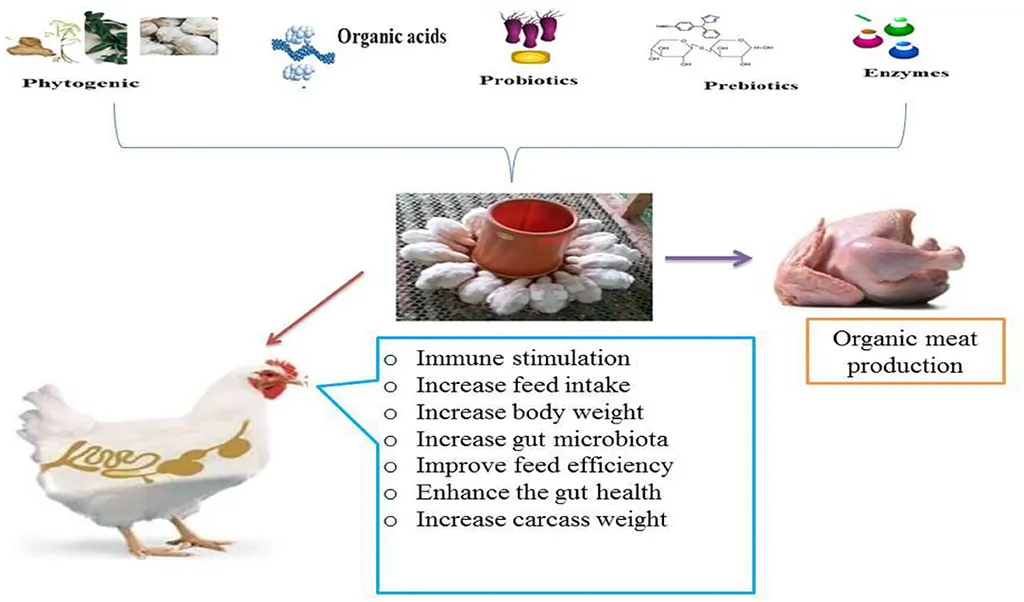In the heart of Egypt, a groundbreaking study is reshaping the way we think about broiler chicken production. Dr. Ayman H. Abd El-Aziz, a researcher from the Department of Animal Wealth Development at Damanhour University, has been exploring the effects of glucosamine sulfate (GS) on broiler chickens, and the results are nothing short of remarkable. Published in the esteemed journal ‘Poultry Science’ (known in English as ‘Scientific Journal of Poultry Science’), this research is set to influence the future of poultry farming, with significant implications for the energy sector.
The study, conducted over 42 days, involved 300 one-day-old Cobb 500 chicks divided into four groups. While one group received a basal diet without GS, the others were supplemented with varying levels of GS—0.1%, 0.2%, or 0.3%. The findings were striking. “Final body weight and total weight gain increased linearly with GS level, while feed intake decreased and feed conversion ratio improved,” Dr. Abd El-Aziz explained. This means that not only did the chickens grow faster, but they also required less feed to do so, a win-win for both the birds and the farmers.
But the benefits didn’t stop at growth performance. The study also revealed significant improvements in carcass yields, including breast, thigh, and fillet, while abdominal fat remained unaffected. “This suggests that GS supplementation enhances muscle development without promoting fat accumulation,” Dr. Abd El-Aziz noted.
The research also delved into the chickens’ health, with GS supplementation enhancing various hematological indices and improving liver and kidney function. “We saw reduced levels of certain enzymes and metabolites, indicating better overall health,” Dr. Abd El-Aziz said. Economically, although feed costs increased with higher GS levels, the highest net profit and economic efficiency were achieved in the group supplemented with 0.3% GS.
So, what does this mean for the future of poultry farming and the energy sector? With improved growth performance and feed efficiency, farmers could potentially reduce their feed costs and environmental impact. Moreover, healthier chickens could lead to a more sustainable and profitable industry. As for the energy sector, more efficient poultry farming could translate into lower energy consumption, contributing to a greener future.
This research is a testament to the power of innovation in agriculture. As Dr. Abd El-Aziz puts it, “Our findings support the use of 0.3% GS as a beneficial additive to enhance performance, health, and profitability in broiler production.” With such promising results, it’s clear that glucosamine sulfate could be a game-changer for the poultry industry and beyond.

